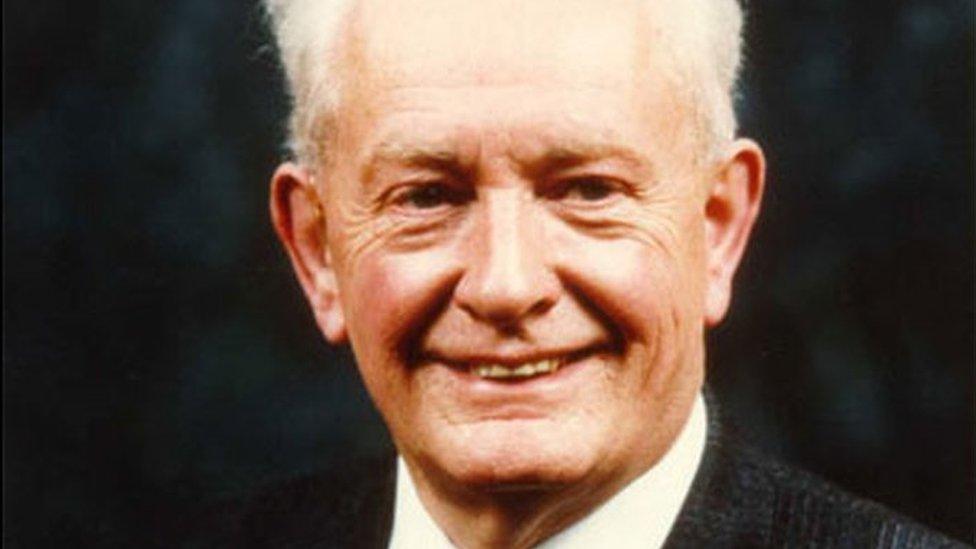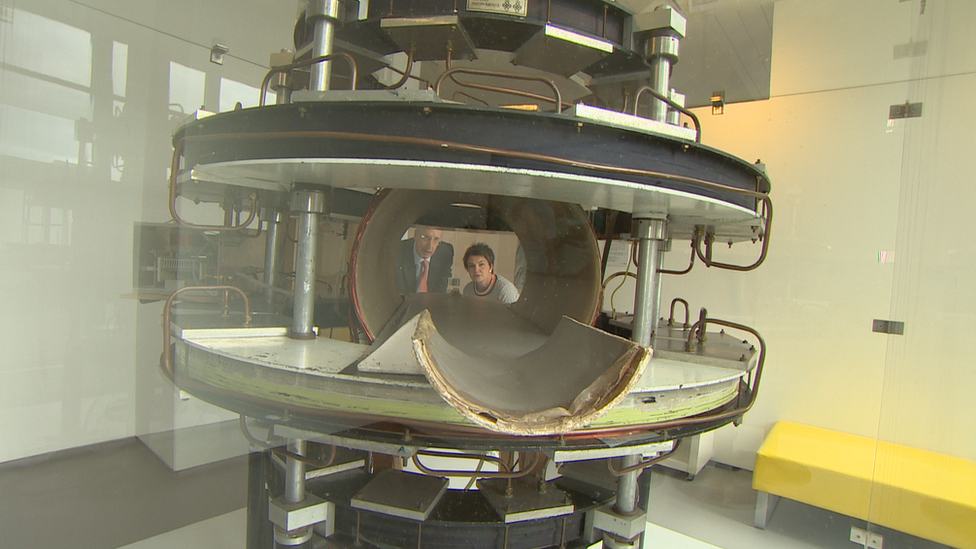Aberdeen physicist behind first full-body MRI scanner dies
- Published

Prof John Mallard worked at the University of Aberdeen for nearly 30 years
A British physicist known for his pioneering work in medical imaging has died at the age of 94.
Prof John Mallard notably led a team at the University of Aberdeen which developed the first whole-body Magnetic Resonance Imaging (MRI) scanner.
He also helped develop Positron Emission Tomography (PET) which can produce detailed three-dimensional images of the inside of the body.
He was appointed the university's first professor of medical physics in 1965.
Born in Northampton, Prof Mallard published work in a journal in 1964 on his research which indicated that magnetic resonance might be able to diagnose cancer.
Colleagues said this "went largely unnoticed".

The world's first full-body Magnetic Resonance Imaging (MRI) prototype at Aberdeen Royal Infirmary
The technology behind MRI was developed in the 1970s by the late Sir Peter Mansfield and his team at the University of Nottingham.
Sir Peter shared the Nobel Prize in Physiology or Medicine in 2003 with the inventor of the technique, US chemist Prof Paul Lauterbur.
But it was Prof Mallard's team in Aberdeen that was responsible for developing the world's first full-body MRI scanner.
Clinicians were able to use the university's machine to carry out the world's first body scan of a man from Fraserburgh with terminal cancer in 1980.
The technology is now used globally in the diagnosis and treatment of cancer, dementia, and a wide range of other conditions and injuries.
Prof Mallard carried out work on PET imaging when the technology was in its infancy.
In his first lecture shortly after joining the university, he correctly predicted PET would become one of the most powerful tools for studying human diseases.
He also brought Scotland's first PET facility to Aberdeen by leading a national fundraising campaign.
The old facility at Woodend Hospital was replaced by the state-of-the-art John Mallard Scottish PET Centre at Aberdeen Royal Infirmary.

MRI scanners are now used routinely around the world
Over his career he received many honours, including an OBE after retiring from the university in 1992.
In 2004 he was awarded the freedom of the city of Aberdeen for his pioneering work.
Professor Siladitya Bhattacharya, head of the university's school of medicine, said: "We are deeply saddened to learn of the passing of Professor John Mallard who, along with his team helped change the face of medical imaging.
"His legacy lives on through the technology that saves lives on a daily basis and we are proud that he carried out such ground-breaking work at the University of Aberdeen.
"Our thoughts are with his family at this time."
Emeritus Professor Peter Sharp who worked for Professor Mallard and then became his successor, added: "Professor John Mallard played a major role in the development of medical physics, both here in the UK and abroad.
"It is no understatement to say that hundreds of thousands of patients worldwide have benefited from his vision for medical imaging."
- Published4 July 2018
